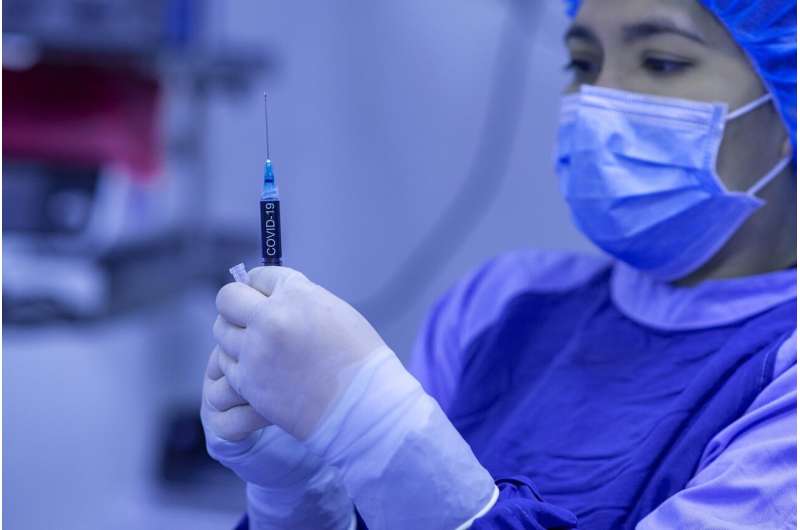
The U.S. is once again experiencing an increase in COVID-19 cases, hospitalizations and deaths due, in part, to the rapid spread of the virus’ highly transmissible Delta variant.
Erin Carlson, director of graduate public health programs at The University of Texas at Arlington, said vaccinations and masks remain the best tools we have against the variant.
“Reluctance to receive the vaccine is the main contributing factor to the alarming trends we are seeing right now,” said Carlson, associate clinical professor in the College of Nursing and Health Innovation.
In a Q&A with UTA News, Carlson answered questions about the vaccine, the emerging Delta variant and the recent updated guidance on masks issued by the U.S. Centers for Disease Control and Prevention.
Q: Why is the Delta variant so dangerous?
A: Delta is more transmissible than any of the previous variants of COVID. It goes back to the fact that a virus is designed to constantly evolve so it can stay alive. Delta can stay alive better than its original form, making it more transmissible. The reason the virus is changing is because there is continued transmission that allows the virus to mutate, causing different, more dangerous strains to emerge.
Q: Does the upward trend in infections mean vaccines are not effective?
A: Absolutely not. The vaccine is working exceptionally well, better than anyone thought possible when this all began.
However, we know that vaccinated people can shed the virus and potentially be contagious. That is the game changer. We also know the new variant has caused breakthrough infections among fully vaccinated folks, not because the science wasn’t right the first time around, but because people didn’t get vaccinated soon enough.
Due to this, the virus got ahead of us, and it has started to win the race. I think people really underestimate the virus.
Q: You mentioned it’s a race. Is there a finish line?
A: It is absolutely a race, and if we are to win, we must play faster and smarter.
I feel everyone had the same finish line in mind—that once there’s a vaccine available, we’re done; we’ve crossed the finish line. But that’s not crossing the finish line. Crossing the finish line is when we have more than 70% uptake of that vaccine. We’re not there yet.
Q: Why has the CDC changed its guidance when it comes to masks for vaccinated people?
A: Science changes because the virus changes. As it evolves, the science must evolve and adapt. Thus, we must change the guidelines based on the new direction of the virus.
It’s frustrating because we felt that one of the rewards of vaccination was becoming mask-free. However, we shouldn’t direct our frustration at the CDC. On the contrary, they have followed the findings of their continued studies and close surveillance of COVID. By doing so, they will save lives.
The bottom line is that we all must go back to wearing masks because so many people chose to remain unvaccinated and continue to transmit this virus.
Q: What would you recommend people do regarding vaccines and mask usage?
A: It is imperative that everyone who can get vaccinated does so. If you receive the vaccine and become infected, it doesn’t mean it doesn’t work.
If you are vaccinated and get the virus, you’re perhaps in bed for a few days, having some sniffles, cold symptoms or losing your taste. After that, you can go back to business as usual. On the other hand, becoming ill while not being vaccinated can result in hospital stays, long-term symptoms, emotional distress for you and your loved ones and, ultimately, death.
As for masks, the CDC says, vaccinated or not, it is advised you wear a mask indoors in public if you are in an area of substantial or high transmission. Unfortunately, DFW is one of these areas. Wearing a mask is vital for those with compromised immune systems or underlying medical conditions.
Source: Read Full Article
